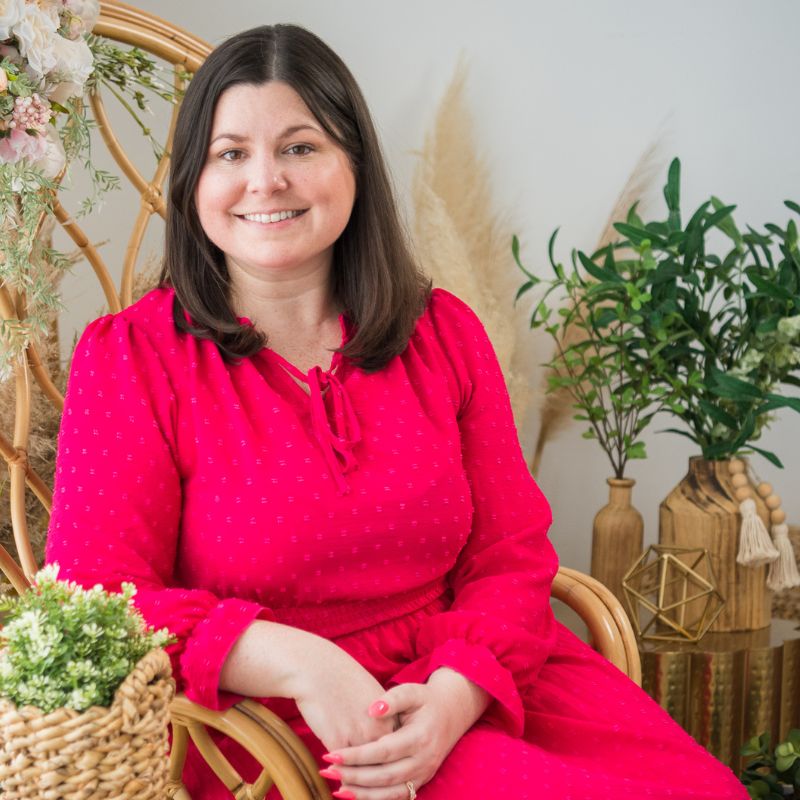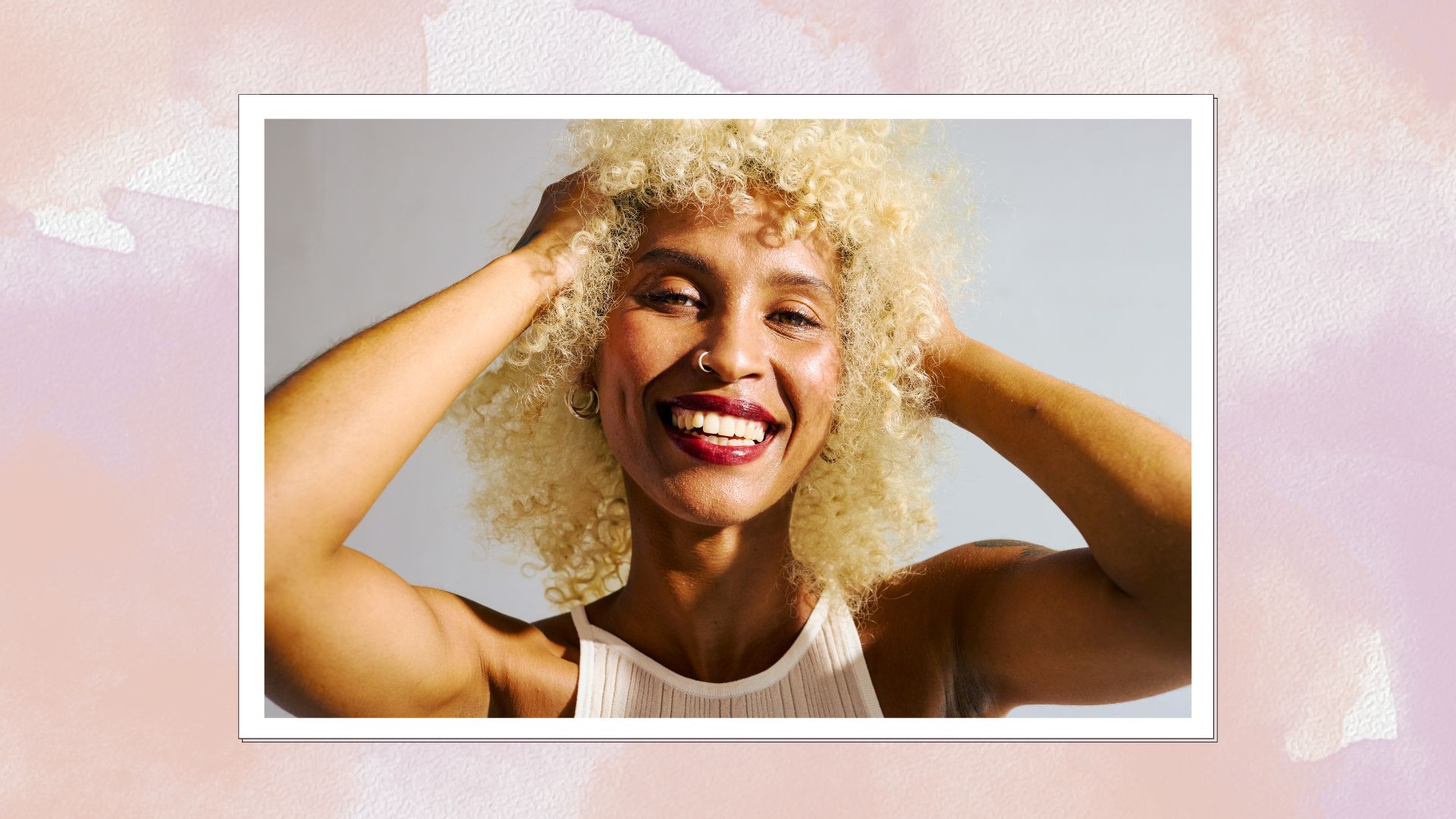I'm a relationship coach - these are 7 questions to ask your partner for more intimacy in your relationship
Looking for a fun date idea to build intimacy in a relationship? Ask your partner these questions as revealed by relationship coach Kathryn Williams


When you first enter into a relationship, intimacy tends to come easily. You want to know everything there is to know about your partner and they want to know everything there is to know about you. However, as the years pass and you get busy with other responsibilities, it's easy to lose track of each other and who you’re becoming.
If you’re feeling distant from your partner or struggling with relationship burnout, asking questions that help improve intimacy can be a great place to start. While it’s easy to equate intimacy with sex, licensed counsellor and sex therapist, Lyndsey Murray explains that intimacy goes well beyond this. “My definition of intimacy includes closeness regarding friendship, emotional vulnerability, and physical touch. Essentially, an intimate relationship can be like feeling at home, as well as erotic excitement and everything in between.”
By investing time in having deeper conversations with your partner, you not only strengthen your bond and spice up your relationship but also create an environment where it’s safe to be curious and vulnerable. As a certified relationship coach, it's something I've seen for myself time and time again.
Questions to build intimacy in a relationship
1. What’s something you’ve been struggling with?
It's very easy to get wrapped up in our lives and lose sight of our partner in a long-term relationship. We can become overly focused on our individual struggles - perhaps work is overly stressful or we’re sandwiched between children who still need us and ageing parents who require more of our time and energy.
When this happens, we can forget that not only are we a unique system on our own but so too is our partner. Together, we also form a relational system which means that whatever we’re struggling with individually will impact the health of our partnership. I personally love this question because it asks us to be curious about what our partner may be going through that perhaps until now, we’ve been unaware of.
“Questions like these invite us to be vulnerable with our partner,” agrees Rachel Davies, a counselling psychologist at Relate Avon. "While this may seem scary, it can help our partners to have more compassion for us and in doing so to rebuild the connection. People can feel isolated or lonely in a relationship if there's a lost connection but taking a step to bring your partner towards you – even confiding a problem – can remind you that you are in a partnership."

Rachel Davies is a clinical supervisor at Relate Avon and also works as a relationship therapist.
2. How do you like to be shown love?
Each of us reaches adulthood with a particular view of what love looks like. From my experience, this is typically based on the way we were shown love as a child and the way we saw those closest to us showing love to each other. Because of this, we’ll often try to show love to our partner in the way we would like to receive it. It's a similar concept to 'love languages'.
Sign up for the woman&home newsletter
Sign up to our free daily email for the latest royal and entertainment news, interesting opinion, expert advice on styling and beauty trends, and no-nonsense guides to the health and wellness questions you want answered.
For example, if you grew up in a family that was very physically affectionate, you may try to show your partner you love them by giving them lots of hugs and other acts of touch. Your partner, on the other hand, may have grown up in a family that was verbally demonstrative and dished out lots of praise but was reserved when it came to touch. This can create a clash - you think you’re showing your partner love by being physically affectionate, yet they’re left feeling unloved because you’re not giving them the words of affirmation they crave. That’s where this question can be so illuminating.
“This is a great question as it helps to avoid two common traps – one is assuming that our partner can mind read what we need and then be disappointed when they get it wrong,” explains Davies. “The other is assuming that our partners like to be shown love in the same way as us. Even when we’ve been together a while we can fall back into these traps so this question is a great way of reminding us of what our partner needs – we then have no excuse to not try and give them what they need.”
3. When do you feel closest to me?
Being in a relationship means that we not only do our best to learn what intimacy means to our partner but we also endeavour to give them this - even if that means stepping outside of our comfort zone. If you’re someone who frequently likes to talk things out but your partner feels closest to you when you’re having a quiet cuddle on the sofa, this is important information to be aware of to avoid relationship issues.
"We can always learn more about our partners however long we’ve been together and we may be surprised how they answer this question,” says Davies. “We need to try to really hear our partners' answers and use what they say to give them more of what they want.”
However, this doesn’t mean you give up things that make you feel closer to your partner. When it comes to how to be happy in a relationship, most experts would agree that both partners need to be invested in understanding one another and meeting each other’s needs. As Davies points out, having space for you to reciprocate by telling your partner when you feel closest to them is vital.

4. What do you love most about our relationship?
Sometimes it’s easy to fall into the trap of focusing on what we don’t like about our partner or our relationship. Maybe we don’t get to spend as much time with them as we’d like or perhaps the way they stack the dishwasher irritates the hell out of us.
Talking to each other about what you love most is a beautiful way to shift the energy in your relationship toward gratitude and remind you of why you’re together in the first place. “This is a lovely connecting question as it can help couples to reminisce, laugh and have an upbeat conversation about the good times,” Davies agrees.
5. What do you need from me right now?
Our needs can change on a day-to-day basis and so too can our partners. Relationships are rarely equal, so being mindful of this is key. Sometimes your partner will be struggling and you’ll need to contribute more to get the team over the finish line - and vice versa.
Instead of trying to guess what your partner needs on hard days or assuming you know, ask them. This will help them to feel seen and supported within your relationship.
“This question is about offering a gift to your partner,” explains Davies. “It can be as diverse as taking the bins out, giving you half an hour away from the kids, or a hug.”
6. What are you enjoying most about our sex life right now? What would you like to see more of?
If you’re feeling brave, this two-part question can help bring you and your partner closer - both physically and emotionally. I love this question because it leads with curiosity, rather than criticism or judgement.
The first question gives your partner a chance to share what they feel is going well in your sex life and the second part is an opportunity to be open about anything they’d like to try or see more of. Both of these can lead to better sex, as Murray - who is also the owner and lead therapist at Relationship Matters Therapy - points out.
"These are great questions to ask! They evoke curiosity and I think curiosity is the starting point to exploring and cultivating a satisfying sex life. It can be a productive conversation if couples can ask and answer these without judgment or defensiveness," she says.

Lyndsey Murray helps individuals and couples looking to improve their relationships and sex lives. Lyndsey has her Master's Degree in Rehabilitation Counseling, is a Licensed Professional Counselor - Supervisor in the state of Texas, and is an AASECT (American Association of Sexuality Educators, Counselors, and Therapists) Certified Sex Therapist. She is also the owner of Relationship Matters Therapy, a counselling practice in the state of Texas.
7. How do you experience me as an intimate partner?
We tend to think we’re more self-aware than we actually are, particularly in romantic relationships. But, in reality, we’re all difficult up close and nobody is easy to live with. When you ask how your partner experiences you, you create space for them to share the positive qualities you bring to their life and the parts of you that are perhaps tricky to navigate.
This is one of Murray’s personal favourite questions for intimacy building. It’s a question I love too. Your partner has the chance to speak openly about how they experience you in your relationship - and their answers can be illuminating. Perhaps they love your generosity and thoughtfulness but struggle with how you’re always running late or unable to plan more than a week ahead. Either way, this is great information for you as it gives you insight into what’s important to your partner.
A word of caution: this question requires you to be courageous enough to receive honest feedback and to do so without defensiveness. This is critical as your partner needs to feel safe enough to provide you with a truthful answer without fear of retribution.
What does it mean to have intimacy in a relationship?
Intimacy can be the glue that keeps us connected to our partners. When times are tough, that glue may feel a bit sparse, and we may feel like we're pulling apart, says Davies. "The good news is that intimacy can be found in many ways, and when we turn towards each other with a desire to reconnect, we increase our openness to intimacy."
Intimacy goes beyond just the physical aspect of a relationship to a feeling of deep emotional closeness and connection with another person. When we have intimacy with our partner, we feel safe sharing our thoughts, feelings and experiences, knowing we will be loved and supported.
While sex can certainly form a part of our intimate life with our partner, knowing how to be intimate without sex will help you to strengthen other areas of your relationship. Emotional, spiritual and intellectual intimacy are different intimacy types that can deepen your connection with your partner.
Tips for improving intimacy in a relationship
- Don't be afraid of conflict: “I think many people are afraid to have the hard conversations out of fear of losing the relationship, and what ends up happening is they give up vulnerability in the name of security,” explains Murray. “When really, vulnerability is what leads to connection and connection leads to intimacy. Show up authentically, be as honest as you can, and embrace your differences - this is what makes the best relationships."
- Focus on the small steps: Davies adds that it’s important to remember that every day you can decide to try to lean into each other. “Building intimacy does not need to be another job on the to-do list but can be done through small steps – what can we do for ten minutes a day that helps our relationship? Little and often is a better strategy to rebuild intimacy than big gestures."
- Appreciate your differences: Remember that your partner is not you - and that's good. It’s easy to fall into the habit of nitpicking and wishing the person you’re with were different, but what if you were to reframe that? Instead of seeing the things you find difficult in your partner as faults (perhaps they’re very direct or incredibly sensitive), try seeing these things as gifts they bring to your relationship.
Kathryn Williams is a former social worker and end-of-life care lecturer turned freelance writer and editor. A qualified relationship coach and meditation teacher, she is passionate about all things related to women’s mental and physical health.
-
 Smeg's retro hand mixer puts the 'king' in baking - I'm convinced it's the best
Smeg's retro hand mixer puts the 'king' in baking - I'm convinced it's the bestThe Smeg 50s Style Hand Mixer is every keen baker's dream: it whips up cream, mixes cookie dough, and kneads bread like the best hand mixers on the market
By Laura Honey Published
-
 From highlights to glosses, here's everything you should know before colouring Afro-textured hair
From highlights to glosses, here's everything you should know before colouring Afro-textured hairKeep your curls and coils healthy during colour processes with this beauty editor's guide
By Keeks Reid Published